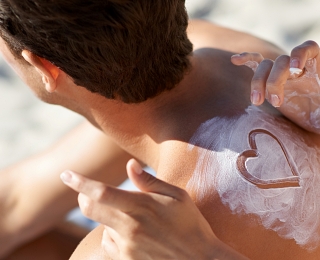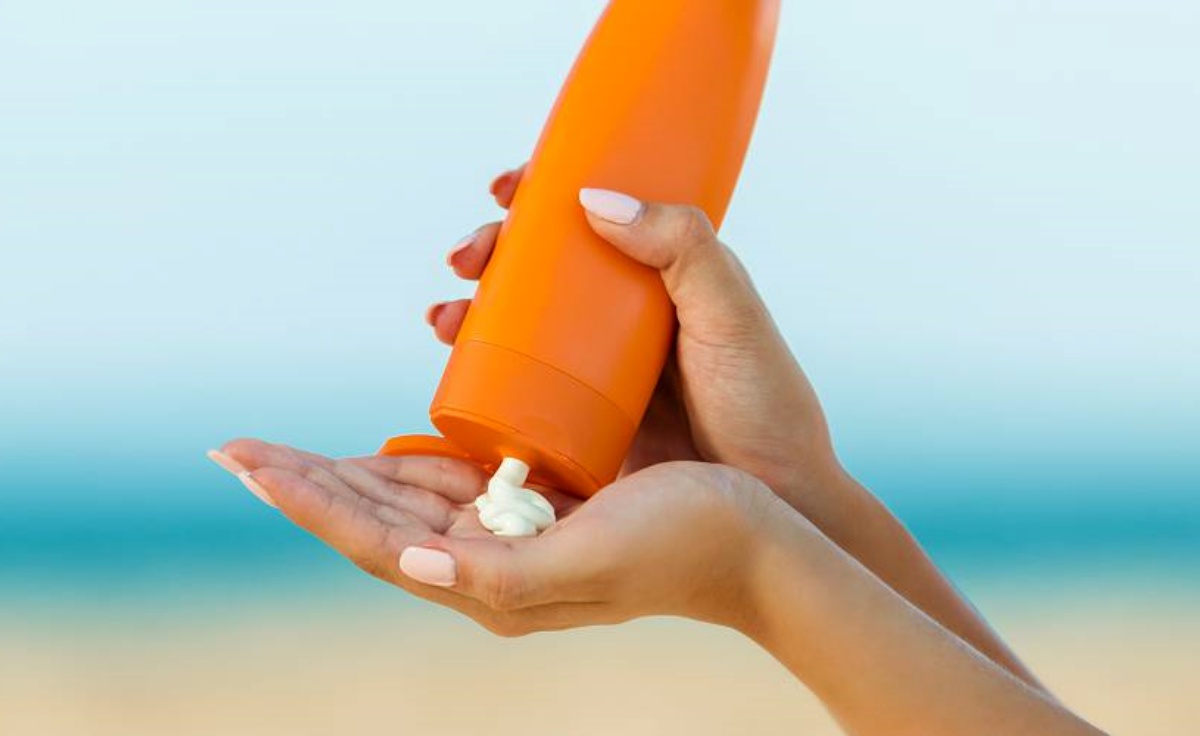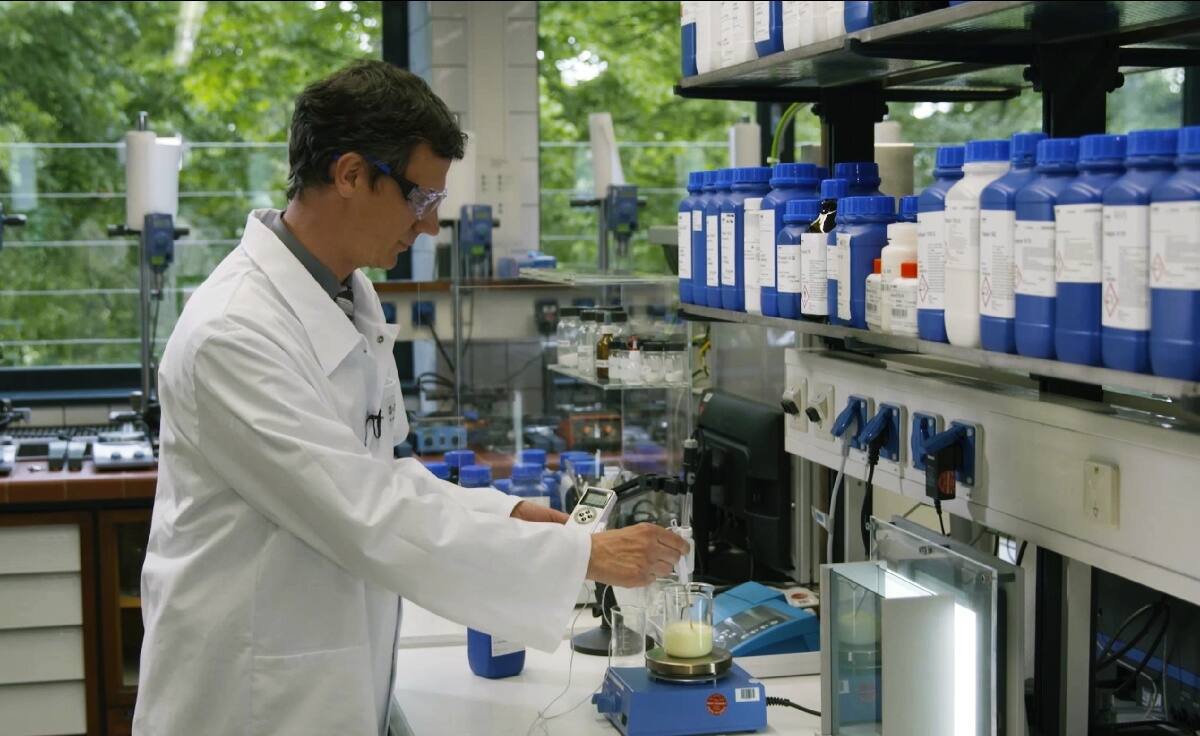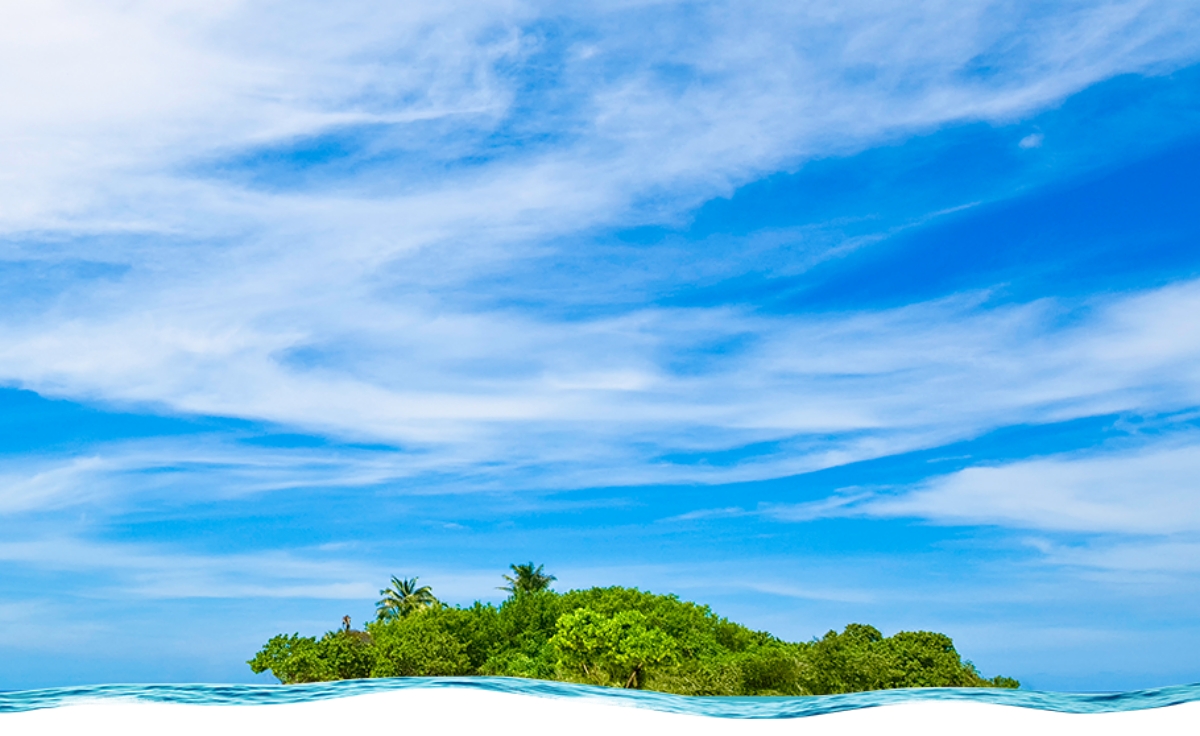
Sun protection
We take sunscreen personally
Take a glance at the store shelves and you’ll see that there is a huge number of sunscreen products available. And this is a good thing, because not only is protection from sunlight important for everyone, but it is now also a highly individual matter.
When things don’t go as planned, people often say: “Everything was better in the past.” Whether or not many things were actually better in the past is something we don’t want to get into here. But not everything was better, and that’s a fact. If we look at our favorite topic, sunscreen, we can say that sunscreen was widely unpopular. The reasons for this are understandable. Many sunscreens were not particularly user-friendly.
Their reputation: historically poor. More paste than lotion, they were difficult to apply evenly, were not absorbed easily, and made the user feel they were wearing a separate layer over their skin. The higher the sun protection factor, the more unpleasant the effect.
The result: consumers were rather reluctant to use sunscreen, and many preferred not to use it at all. The level of protection provided was also incomparable with today’s high-performance sunscreen products. In a nutshell: sunscreen is much better today and, above all, more versatile. You could now say that sunscreen is now a firm fixture among users of personal care products.
Diversity, personalization, meeting a wide range of needs – all of these topics have long played a role in the world of cosmetics. And now personal care and sun protection have caught up. Tailor-made sun protection makes sense and offers many possibilities. But what exactly does this mean? “Good sun protection is important, of course. But exposure also plays a role. If you are indoors or if it is a very cloudy day, you need far less sunscreen than if you are lying on the beach all day long. You need to use sunscreen in a way that suits the situation and the individual,” explains Marcel Schnyder, Head of Global Technical Center Sun Care.
This is one of the reasons why there is not just one sunscreen product available. There is no one type of sunscreen that can be used for all people and all possible areas of application. In addition to the place of use or activities of the user, it is the personal needs and preferences (sensory effect) and the biological differences in people’s skin that have led to the range of personal care products for sun protection becoming so vast.
Different needs – different sun protection products
The requirements for sunscreen products are high and varied. They must provide protection against sunburn, significantly reduce the risk of skin cancer and should virtually stop UV-related aging. Overall, however, the requirements placed on cosmetic products are many times higher:
- Delivering on the performance profile
- Stable formulation
- Good skin compatibility
- Pleasant texture
- Optimal sensory properties
- Pleasant scent
Tailor-made sunscreen is available for, among other things:
- Beach vacations (swimmer or just sunbather?)
- In the mountains (a solid cream provides the best protection)
- Children
- Daily skin care
- Outdoor sports
- Nature – eco-friendly products
To achieve all this, you need to have a) high protection performance across the entire light spectrum and b) a good and sensible combination of UV filters, oils and other ingredients in the formulation, with this formulation of various components then serving the requirements for the product. In addition to the sun protection factor, photostability and sensory effect, it is important to consider the trend of formulating and manufacturing sun protection in accordance with environmental sustainability.
The building blocks of an effective sunscreen
We've already provided information about ingredients, classifications and INCIs here on our sun page. But what are the actual functions of these ingredients?
More informationEcoSun Pass - nature and humans in harmony
BASF Personal Care uses the EcoSun Pass to help sunscreen manufacturers bring formulations to market that are good for people AND the environment.
More informationThere’s something for everyone
Use sunscreen in a way that works. Sounds simple, but what exactly does this mean? Here are just a few examples. In everyday life, there is a high demand for light formulations. Combined with the right skincare properties, nothing stands in the way of UV protection. Sunscreen becomes part of the daily skincare routine, feels good on the skin and is also visually attractive, i.e. the product is not visible after application and doesn’t whiten. Thanks to UV filters, such as Uvinul TS Hydro, particularly light formulations with extremely appealing sensory effects are also able to offer a high SPF (sun protection factor). SPF is still one of the main features for consumers when it comes to buying sunscreen. But a high sun protection factor alone does not ensure a good sunscreen.
What you need to pay attention to in your daily sun protection routine is where you are. For example, if you’re sitting in the office during the day, you don’t need a product with SPF 50+, but you should still use sun protection. As UVA rays can penetrate your skin through the windows, you should use products with high UVA protection. Your skin will thank you in the long run.
“In very hot countries, light sensory properties are more important. In the mountains in winter, a slightly heavier composition is preferred. The regional differences are very strong,” says Marcel Schnyder, Head of Global Technical Center Sun Care at BASF in Grenzach. It is important to choose the right product for your particular activity and life situation.
Let’s take a look at the best time of the year: summer vacation. Here, too, consumers have the opportunity to choose a suitable sunscreen that they like and need. In addition to the appropriate protection against UVA and UVB rays, water resistance for all swimmers among the vacationers is an important factor. Claims about a sunscreen’s water resistance are not only of interest and important for those consumers who are about to go on a beach vacation. These customers in particular do of course want to be able to rely on the fact that the product guarantees a certain level of water resistance. Our colleague Myriam explains when a sunscreen is considered “waterproof” in this video. Even so, remember to put on more sunscreen after swimming.
What is your skin type?
Since 1975, the different skin types have been divided into categories which are still in use today. Knowing your skin type is helpful so you can plan how to protect your skin.
More informationEven dark skin needs protection
Another factor that many vacationers may not even think of is the stickiness of the sunscreen. After all, who wants to have half the sandy beach sticking to them? This means that products for beach vacations should be less sticky.
Do you enjoy outdoor sporting activities? There are sunscreen products that meet your needs too, so you can feel completely comfortable with your UV protection. A light formulation is ideal for the arms, legs and neck. Sprays, for example, can be applied quite easily and evenly. But it is better to avoid getting sunscreen in your eyes, especially when your face sweats. The solution here is a more solid variant, such as a cream or stick, which can prevent this from happening.
If you are one of the very fair skin types (1 or 2), then the solution is obvious: you definitely need sunscreen products with a high SPF. But what about darker skin types 4 to 6? They are less likely to get sunburned and have a higher level of natural protection due to the higher proportion of eumelanin in their skin. But people with these skin types should still use sunscreen. The skin is already affected before sunburn sets in or the skin starts to redden. The damage may not be immediately visible, but it triggers processes that inevitably lead to damage later on – from hyperpigmentation, to premature skin aging, to skin cancer.
Is there a sunscreen specifically for people with dark skin? In short: yes, there is. This is particularly important because people with dark skin tones use sun protection products less often. Less sunburn, less redness, so there’s no danger – this is a deceptive misjudgment. The needs of these consumers must also be met. To avoid problems with hyperpigmentation, for example, these sunscreen products must offer a high level of UVA1-VIS protection.
In addition, for better acceptance, the sunscreen should not be visible on dark skin when applied and should not whiten on the skin if it contains particulate filters. As dark skin has an increased level of natural protection, SPF 50 to 50+ does not need to be used. Factor 30 is a good recommendation here. This means that the product can be manufactured with fewer UV filters.
One need has nothing to do with light or dark skin
We would like to mention one particular need that all users have as an example of tailor-made sunscreen, because it is also a matter very close to our hearts: the desire for products that are as environmentally friendly as possible is especially strong in the sunscreen market. “Development continues all the time. With today’s knowledge, the facts and results available, sun protection products can be developed and formulated with as little impact on the environment as possible,” says Stéphanie Acker from BASF, Grenzach. It is important to point out the level of knowledge. There are many investigations and studies underway on the effects and damage that sunscreen products leave behind in the sea.
One particular finding is important to mention: just because a product offers a high sun protection factor doesn’t automatically mean that it has a greater environmental impact than products with fewer UV filters and a lower SPF. It depends on the filters contained in the product.
Manufacturers of sunscreen products want their customers to feel comfortable with the product and its application. Creams, lotions or oils should feel good so that end consumers use them and are happy to apply them. Customized sunscreen products, all with the same goal: to let you enjoy the sun while providing the best possible protection against damage to your health.





